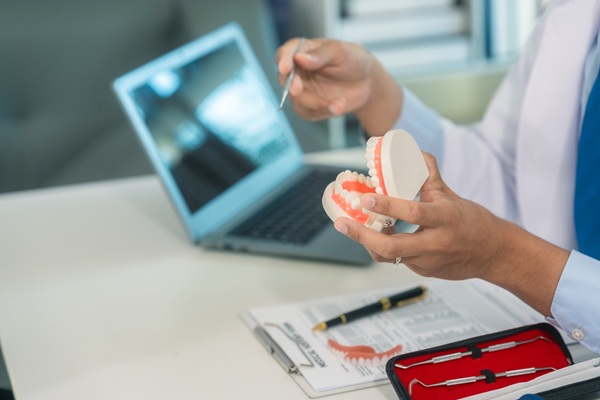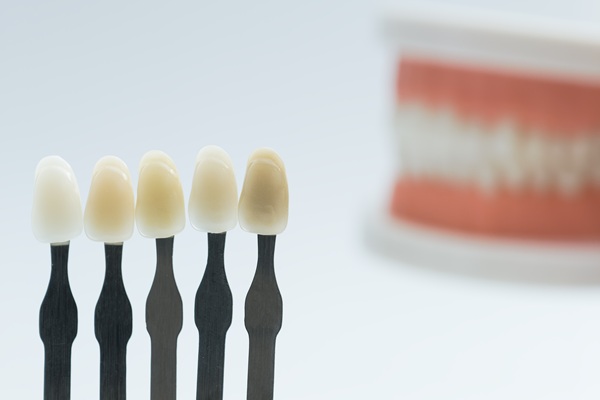 A routine dental care plan refers to oral hygiene that a patient performs at home as well as preventative care performed by a dentist on a periodic basis. When a patient has gum disease, the need for dental care is even greater. Some specific requirements may change, and the patient may have treatments that were not necessary before. If the patient's day-to-day routine changes, it is most likely to include even more brushing and flossing.
A routine dental care plan refers to oral hygiene that a patient performs at home as well as preventative care performed by a dentist on a periodic basis. When a patient has gum disease, the need for dental care is even greater. Some specific requirements may change, and the patient may have treatments that were not necessary before. If the patient's day-to-day routine changes, it is most likely to include even more brushing and flossing.
Additions to dental care for gum disease
Patients with gum disease may receive additional treatments on either a one-time or ongoing basis.
Antibiotic treatment
Gum disease is typically caused by a bacterial infection. Antibiotic solutions or topical antibacterials can be applied to the gums to treat the infection by killing the oral pathogens that cause it.
Gum graft
The gums are supposed to attach to and hold the teeth in place, but a bacterial infection can cause recession, or pulling away. This can leave the roots of the teeth exposed. If recession is severe, gum grafting is a procedure that can cover the roots by moving gum tissue back into the proper position.
Scaling and root planing
Scaling and root planing is also known as periodontal therapy or deep cleaning. It typically becomes part of a routine dental care plan for patients with gum disease. It is performed when a buildup of plaque and tartar on the teeth causes the gums to pull away and expose the roots.
During deep cleaning, the bacteria, plaque, and tartar are removed from the roots and surfaces of the teeth. When these are clean and free of tartar and plaque, the gums often reattach themselves. To aid in this process, and also to make it more difficult for bacteria to build up again, periodontal therapy involves smoothing the surfaces of each tooth.
Regular cleanings
Scaling and root planing does not take the place of routine cleanings. Rather it is performed in addition to the regular cleanings typically performed by a dentist.
Management at home
For periodic in-office treatments to be effective, patients must also perform daily oral hygiene at home. Gum disease may make brushing and flossing painful or cause bleeding, but it is still necessary to make them part of an everyday routine. Dentists recommend brushing at least twice a day and flossing at least once per day.
There are tools available that may make brushing and flossing at home easier or more effective for people with gum disease. Dental tape or comfort floss are easier on the gums. These do not cause bleeding or pain. Compared to a manual toothbrush, an electric one removes more tartar and plaque so may be more effective at stopping the progress of gum disease. A dentist may recommend a mouth rinse that helps to kill bacteria and prevent plaque and tartar buildup on the teeth.
Conclusion
Gum disease does not eliminate the need for routine dental care. If anything, it makes the need even more imperative. However, it could necessitate changes to your existing routine.
Request an appointment or call Johns Creek Dentistry at 770-623-1427 for an appointment in our Johns Creek office.
Recent Posts
A crucial component of being healthy is routine dental care. When oral health is ignored, harmful bacteria can compromise the rest of the body. Healthy dental practices involve a two-prong approach of visiting the dentist regularly and continuing oral health care at home. Discover more about what is considered routine and effective dental care practices.Making…
Most people understand the importance of regular medical screenings to prevent various illnesses, but many do not realize the relationship between oral health and general health. Routine dental care is an essential preventative measure necessary to ensure good health.Gingivitis and periodontal disease can cause infections that lead to tooth loss, jawbone loss, bite changes, and…
Prioritizing routine dental care is necessary for good health. Unfortunately, some people can find it difficult to care properly for their teeth by brushing, flossing, and seeing a dentist on a regular basis. Patients who disregard dental hygiene and professional care need immediate action to prevent dangerous outcomes.In addition to an unsightly smile, failing to…


